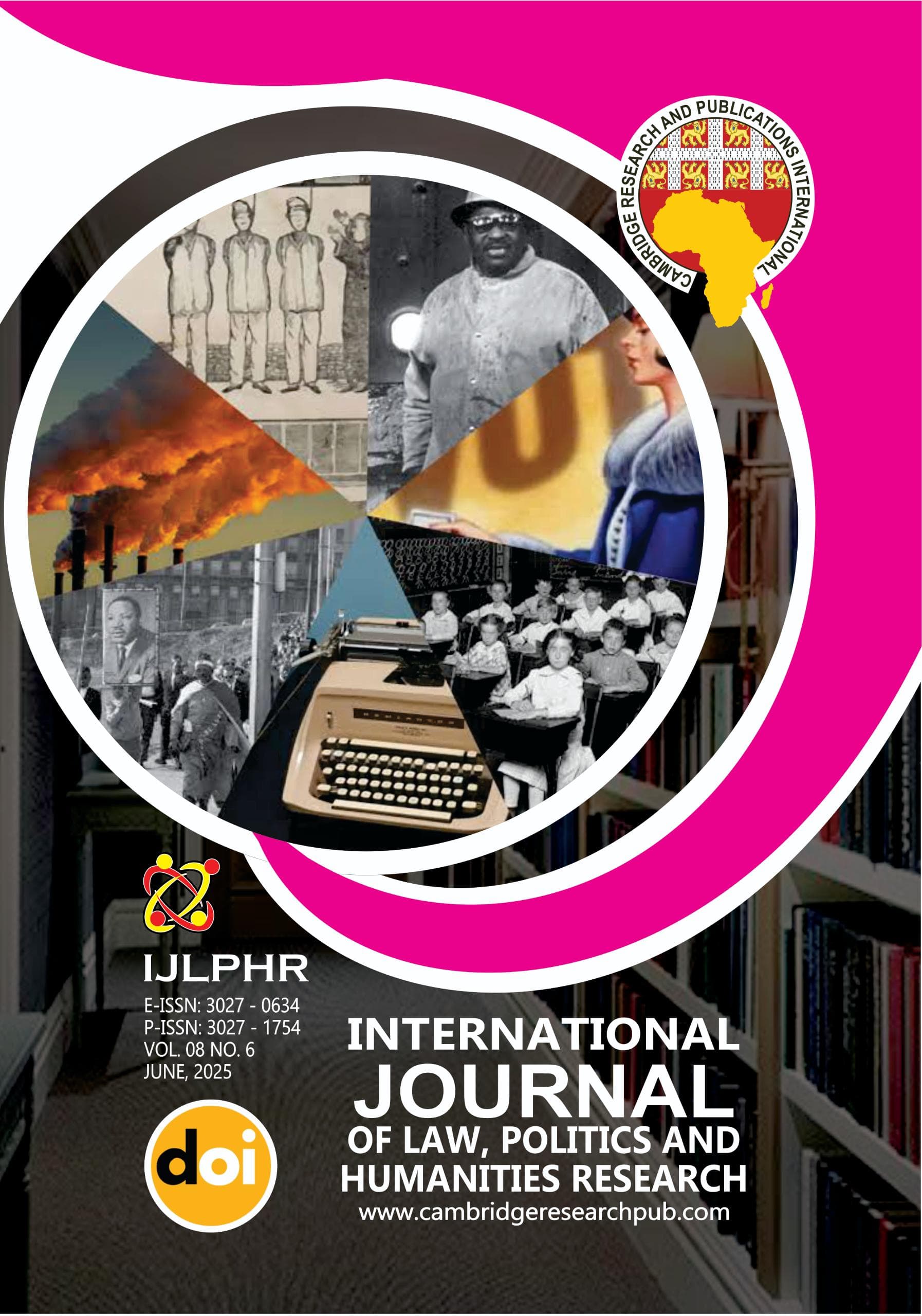THE WAGNER GROUP AND THE EVOLVING SECURITY LANDSCAPE IN AFRICA: GEOPOLITICAL IMPLICATIONS AND STRATEGIC CONCERNS
Main Article Content
Abstract
This study critically examines the Wagner Group’s expanding role in Africa and its implications for regional security, governance, and geopolitical alignment. As a Russian-linked private military company (PMC), the Wagner Group has become a central instrument in the Kremlin's hybrid warfare strategy, offering military support, political influence, and economic exploitation in exchange for access to natural resources and strategic footholds. The research adopts a qualitative methodology, relying primarily on secondary sources including academic literature, policy reports, and investigative journalism. It applies Hybrid Warfare Theory as the central analytical framework to explore how Wagner’s activities in countries such as Mali, the Central African Republic (CAR), Sudan, and Libya blur the lines between state and non-state actors, peacekeeping and destabilization, and partnership and coercion. The findings suggest that Wagner’s operations undermine democratic institutions, exacerbate human rights abuses, erode national sovereignty, and disrupt regional security cooperation. Furthermore, the group's entwinement with Russian foreign policy doctrines such as the Gerasimov and Primakov strategies underscores a deliberate shift in global power dynamics aimed at countering Western influence. The study concludes that addressing Wagner’s impact requires a long-term commitment to strengthening African institutions, enhancing international accountability mechanisms, and fostering resilient, locally owned security structures.
Downloads
Article Details
Issue
Section

This work is licensed under a Creative Commons Attribution 4.0 International License.




